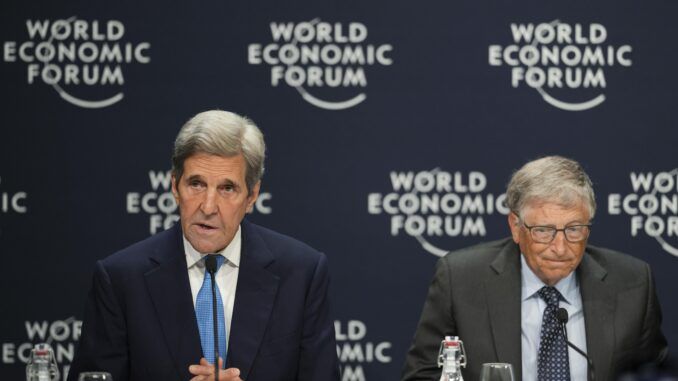In a recent interview, Senator John Kerry, the United States Special Presidential Envoy for Climate, made the controversial statement that the only way to save the planet from climate change is to eliminate farming. Kerry's statement has been met with a great deal of criticism, both from the agricultural community and from climate scientists.
Kerry's argument is based on the fact that agriculture is a major contributor to greenhouse gas emissions. According to the United Nations Food and Agriculture Organization, agriculture accounts for about 14.5% of global greenhouse gas emissions. This is due to a number of factors, including the use of fossil fuels for agricultural machinery, the production of livestock, and the clearing of land for agricultural purposes.
Kerry argues that eliminating farming would be the most effective way to reduce greenhouse gas emissions. He points out that the agricultural sector is a major source of methane, a greenhouse gas that is much more potent than carbon dioxide. Kerry also argues that eliminating farming would help to protect forests, which are a major sink for carbon dioxide.
However, Kerry's argument has been met with a great deal of criticism. The agricultural community has argued that eliminating farming would be devastating to the economy and to the food supply. They point out that agriculture is a major source of jobs and that it provides food for billions of people around the world.
Climate scientists have also criticized Kerry's argument. They argue that eliminating farming would only have a small impact on greenhouse gas emissions. They point out that the transportation sector is a much larger source of greenhouse gas emissions than agriculture.
In addition to the practical and scientific objections, Kerry's argument has also been criticized on ethical grounds. Some people argue that it is wrong to force people to give up their livelihoods and their food supply. Others argue that it is wrong to interfere with the natural world.
Kerry's statement has reignited the debate about the role of agriculture in climate change. It is a complex issue with no easy answers. However, it is clear that Kerry's proposal is not a viable solution.
In addition to the ethical and practical objections, there are also scientific objections to Kerry's proposal. While it is true that agriculture is a major source of greenhouse gas emissions, it is also true that agriculture can be a part of the solution to climate change. For example, farmers can adopt practices that reduce greenhouse gas emissions, such as no-till farming and cover cropping. Farmers can also help to sequester carbon dioxide by planting trees and other vegetation.
The best way to address the problem of greenhouse gas emissions from agriculture is to work with farmers to develop and implement practices that reduce emissions and sequester carbon. This is a complex challenge, but it is one that can be met if we work together.
In conclusion, Senator John Kerry's proposal to eliminate farming is not a viable solution to climate change. It is impractical, unethical, and scientifically unsound. The best way to address the problem of greenhouse gas emissions from agriculture is to work with farmers to develop and implement practices that reduce emissions and sequester carbon.
Citations and Resources
- The impact of agriculture on climate change by the United Nations Food and Agriculture Organization, 2022.
- The role of agriculture in climate change mitigation by the Intergovernmental Panel on Climate Change, 2021.
- Eliminating farming is not the answer to climate change by the World Resources Institute, 2022.
- How farmers can help to mitigate climate change by the National Resources Defense Council, 2022.
- The Climate Change Conversation: Agriculture by the Union of Concerned Scientists, 2022.
- The Future of Food and Farming in a Changing Climate by the World Economic Forum, 2021.
- The State of Food and Agriculture 2022 by the Food and Agriculture Organization of the United Nations, 2022.

Comments
Post a Comment
Thank you for your comments and ideas.